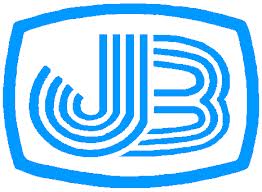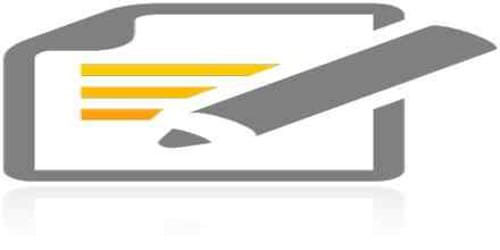Organizational Profile
Historical Background of the organization
Janata Bank Limited is the 2nd largest state owned commercial bank in Bangladesh. Immediately after the emergence of Bangladesh in 1971, the erstwhile United Bank Limited and Union Bank Limited were named as Janata Bank. It was established under the Bangladesh Bank order 1972. During the privatization process it was incorporated as a public Limited Company on 21, May 07 vide certificate of incorporation No-C66933(4425)07. The Bank has taken the over the business of Janata Bank at a purchase consideration of Tk. 2593.90 million as a going concern through a vendor agreement signed between the Ministry of Finance of the Peoples’ Republic of Bangladesh and the Board of Directors on behalf of Janata Bank Limited on 15th November 2007. Janata Bank Limited operates through 851 branches including 4 overseas branches at United Arab Emirates and a subsidiary company named Janata Exchange Company Srl in Italy. It is linked 1202 foreign correspondents all over the world.
Objectives of the organization
Mission:
To be recognized as the leading commercial bank in the Bangladesh market providing retail and corporate banking services and as a trusted and respected partner in the social and economic development program of our nation.
Vision:
To become effective largest commercial bank in Bangladesh to support socio-economic development of the country and to be a leading bank in South-Asia.
Services of the organization
Besides normal banking operation, Janata Bank Limited offers special services to a large number of clients/agencies throughout the country. Under the network of utility service, customers of different govt. organizations, corporate bodies, local bodies, educational institutions, students, etc are continuously getting benefits from the Bank. Janata Bank Limited’s utility services are:
Bills Collection:
Gas bills of Titas, Bakhrabad and Jalalabad Gas Transmission and Distribution Companies.
Electricity bills of Dhaka Electricity Supply Authority, Dhaka Electricity Company, Bangladesh Power Development Board and Rural Electrification Board.
Telephone bills of Telegraph and Telephone Board.
Water/Sewerage bills of Water and Sewerage Authority.
Municipal holding tax of City Corporation/ Municipalities.
A pilot scheme is underway to provide personalized services to our clients.
Payments made on behalf of Govt.
Non- Govt. teacher’s salaries
Girl Students scholarship/stipend & Primary Student Stipend.
Army pension
Widows, divorcees and destitute Women Allowances
Old-age Allowances
Food procurement Bills
As per decision of the govt. 46 (Forty Six) branches of our bank (40 branches in Dhaka city, 1(one) branch in N.gonj city and 5(five) branches in Chittagong city) are involved to receive the all utility bills in a same station from January’04.
Services Areas
Branches
There are 851 branches of Janata Bank Limited in home and abroad. Among them 443 branches are situated in urban areas including four foreign branches and 408 branches are in rural areas. And all foreign branches are situated in United Arab Emirates.
| Division | Town | Rural zone | Total |
| Dhaka | 162 | 82 | 244 |
| Chittagong | 100 | 88 | 188 |
| Rajshahi | 80 | 131 | 211 |
| Sylhet | 22 | 36 | 58 |
| Khulna | 75 | 71 | 146 |
| Overseas | 4 | 0 | 4 |
| Total | 443 | 408 | 851 |
Source: Annual Meeting Report 2010
Overseas Branches:
| SL.No: | City | No of Branch | Status |
| 01. | Abu Dhabi | 01 | Foreign |
| 02. | Al-Ain | 01 | Foreign |
| 03. | Sharjah | 01 | Foreign |
| 04. | Dubai | 01 | Foreign |
Total | 04 | ||
Source: Annual Meeting Report 2010
Organizational structure
Management Aspect
Like every other business organization, the top management makes all the major decisions of Janata Bank. The board of directors being at the highest level of organizational structure plays an important role in policy formulation, but it is not directly concerned with the day-day operations of the bank. They have delegated this duty to the management committee. The board mainly establishes the objectives and policies of the bank.
One chairman, eleven directors, one CEO & MD and one company secretary are consist of Board of Directors of Janata Bank Limited.
Mid and lower level employees get the direction and instruction from the Board of Directors about the duties and tasks they have to perform. The chief executive provides the guideline to the managers and employees, but delegates responsibility for determining how tasks and goals are to be accomplished.
Future plans of the organization
- To involve in export activities in a large scale by maintaining good communication with various parties.
- To collect new members in FY2010 to start export related new business.
- At least 2 new AD branch will open in FY2010.
- More facilities will provide to the exporters on the basis of export priority.
- New Credit Product will start in a large scale by name of BMRE Loan for export project to expand factory, import machineries, purchase transport among exiting parties.
- To take the competitive position charge, decrease commission and other facilities will continue.
- To increase export business monitoring system has made stronger in head office and respective branches.
- To increase export business has appointed sufficient manpower, providing special services and related different training program of officers has been will be started.
Foreign Exchange Department
Introduction
One of the important businesses carried out by the commercial bank is foreign trading. The trade among various countries falls for close link between the parties dealing in trade. The situation calls for expertise in the field of foreign operations. The bank, which provides such operation, is referred to as rending international banking operation. Mainly transactions with overseas countries in respect of import, export and foreign remittance dealings under the preview of foreign exchange department. International trade demands a flow of goods from seller to buyer and of payment from buyer to seller. In this case the bank plays a vital role to bridge between the buyer and seller.
Foreign exchange department of Janata Bank Limited is one of the most important departments among all departments. This department handles various types of activities. Among these main three are as follows:
a) Import
b) Export and
c) Foreign remittance
Opening Letter of Credit (L/C)
In global business environment, buyers and sellers are often unknown to each other. So seller always seek guarantee of payment for his exported goods. In this situation bank plays an important role. Bank gives export guarantee that it will pay for the goods on behalf of the buyer. This guarantee is called “Letter of Credit” or LC. Thus the contract between importer and exporter is given a legal shape by the banker by its Letter of Credit.
Procedure of opening the Letter of Credit (L/C)
The importer after receiving the proforma invoices from the exporter, by applying for the issue of documentary credit, the importer requests his/her bank to make a promise of payment to the supplier. Obviously, the bank will only agree to this request if it can rely on reimbursement by the applicant. As a rule accepted as the sole security for the credit particularly if they are not the shorts of commodity that can be traded on an organized market, such an agreement would involve the bank in excessive risk outside its specialized field. The applicant must therefore have adequate fund in the bank account or a credit line sufficient to cover the required amount.
Banks deals with documents and not goods. Once the bank has issued the credit its obligation to pay is conditional on the presentation of the stipulated documents within the prescribed time limit. The applicant cannot prevent a bank from honoring the documents on the grounds that the beneficiary has not delivered goods.
The importer submit the following documents with the application for opening the L/C
- Tax Identification Number (TIN)
- Valid trade license
- Import registration certificate (IRC)
The bank will supply the following documents before opening the L/C
- LCA form
- IMP form
- Necessary charger documents for documentation
The above documents/papers must be completed duly signed and filled by the parties according to the instruction of the concern banker.
After scrutinizing above-mentioned documents carefully, bank delivers the following forms to be filled up by importer and banker then check it carefully:
Whether the goods to be imported is permissible or not.
Whether the goods to be imported is demanding or not.
L/C Application Form (L/CAF)
L/C Application Form is a sort of an agreement between customer and bank on the basis of which letter of credit is opened. Bank provides a printed form for opening of L/C to the importer. A special adhesive stamp of value Tk.200 is affixed on the form in accordance with Stamp Act currently in force. While opening, the stamps are cancelled. Usually the importer expresses his decision to open the L/C quoting the amount of margin in percentage. Usually the importer gives the following information –
Full name and address of the importer
Full name and address of the beneficiary
Draft amount
Availability of the credit by sight payment/ acceptance/ negotiation/ deferred payment
Time bar within which the documents should be presented
Sales type (CIF/FOB/C&F)
Brief specification of commodities, price, quantity, indent no. etc.
Country of origin
Bangladesh Bank registration no.
Import License/LCAF no.
IRC no.
Account no.
Documents no.
Insurance Cover Note/Policy no., date, amount
Name and address of Insurance Company
Whether the partial shipment is allowed or not
Whether the transshipment is allowed or not
Last date of shipment
Last date of negotiation
Other terms and conditions (if any)
Whether the confirmation of the credit is requested by the beneficiary or not.
The L/C application must be completed/filled in properly and signed by the authorized person of the importer before it is submitted to the issuing bank.
L/C Authorization Form (L/CAF)
The Letter of Credit Authorization Form (LCAF) is the form prescribed for the authorization of opening letter of credit/payment against import and used in lieu of import license. The authorized dealers are empowered to issue LCA Forms to the importers as per basis of licensing of the Import Policy Order in force to allow import into Bangladesh. If foreign exchange is intended to be bought from the Bangladesh Bank against an LCAF, it has to be registered with Bangladesh Bank’s Registration Unit located in the concerned area office of the CCI&E. The LCA Forms available with authorized dealers are issued in set of five (05) copies each. First Copy is exchange control copy, which is used for opening of LC and effecting remittance. Second Copy is the custom purpose copy, which is used for clearance of imported goods from custom authority. Triplicate and Quadruplicate Copy of LCAF are to be sent to concerned area of CCI&E office by authorized dealer/Registration Unit of Bangladesh Bank. Quintuplicate Copy is kept as office copy by authorized dealer/Registration Unit. The Letter of Credit Authorization Form (LCAF) contains the followings –
Name and address of the importer
IRC no. and year of renewal
Amount of L/C applied for (both in figure and in word)
Description of item(s) to be imported
HS Code No.
Signature of the importer with seal
List of goods to be imported
- Forwarding Documentary Credit by Advising or Confirming Bank:
There are usually two banks involved in a documentary credit operation. The issuing bank and the 2nd bank, the advising bank, is usually a bank in the seller’s country. The issuing bank asks another bank to advise or confirm the credit.
If the 2nd bank is simply “advising the credit”, it will mention that when it forwards the credit to seller, such a bank is under no commitment or obligation to pay the seller.
If the advising bank is also “confirming the credit”, this mention that the confirming bank, regardless of any other consideration, must pay accept or negotiate without recourse to seller. Then the bank is called confirming bank also.
- Submission of Necessary Documents by Exporter to the Negotiating Bank:
As soon as the seller/exporter receives the credit and is satisfied that he can meet its terms and conditions, he is in a position to load the goods and dispatch them. The seller then sends the documents evidencing the shipment to the bank.
Exporter will submit those documents in accordance with the terms and conditions as mentioned in L/C. Generally the documents observed by the foreign exchange department are:
Bill of exchange
Commercial invoice
Bill of lading / Air way bill / Truck receipt
Certificate of origin
Packing list
Clean Report of Finding (CRF)
Insurance cover note
Pre-shipment certificate
- The Documents Sent To The Issuing Bank Through The Negotiating Bank:
The negotiating bank carefully checks the documents provided by the exporter against the credit, and if the documents meet all the requirement of the credit, the bank will pay, accept, or negotiate in accordance with the terms and conditions of the credit. Then the bank sends the documents to the L/C opening bank.
- Making the Payment of Foreign Bill through the Reimbursing Bank:
The L/C issuing bank getting the documents checks immediately and if they are in order and meet the credit requirements; it will arrange to make payment against L/C through reimbursement bank and will send the importer the document arrival notice.
Securities of L/C
Janata Bank Limited respective officials scrutinize the application in the following manner-
a) The terms and conditions of the L/C must be complied with UCPDC 500
and Exchange Control & Import Trade Regulation Act.1947.
b) Eligibility of the goods to be imported.
c) The L/C must not be opened in favor of the importer.
d) Radioactivity report in case of food item.
e) Survey report or certificate in case of old machinery
f) Carrying vessel is not of Israel.
g) Certificate declaring that the item is operation not more than 5 years in case of car.
Export
Janata Bank Limited exports a large quantity of goods and services to many countries. Readymade textile garments (both knitted and woven), Jute, Jute-made products, frozen shrimps, tea, hide and skin, vegetables are the main goods that Bangladeshi exporters exports to foreign countries. Garments sector is the largest sector that exports the lion share of the country’s export. Bangladesh exports most of its readymade garments products to U.S.A and European Community (EC) countries. Bangladesh exports about 40% of its readymade garments products to U.S.A. Most of the exporters who export through Janata Bank Limited foreign exchange Branch are readymade garment exporters. They open export L/Cs here to export their goods, which they open against the import L/Cs opened by their foreign importers
Formalities of Export Procedure
There are a number of formalities, which an exporter has to fulfill before and after shipment of goods. These formalities or procedures are enumerated in brief as follows:
Obtaining Export Registration Certificate ERC: No exporter is allowed to export any commodity for export from Bangladesh unless he is registered with Chief Controller of Imports and Exports (CCI & E) and holds valid Export Registration Certificate (ERC). After applying to the CCI&E in the prescribed from along with the necessary papers, concerned offices of the Chief Controller of Imports and Exports issues ERC. Once registered, exporters are to make renewal of ERC every year.
Securing the order: After getting ERC, the exporter may proceed to secure the export order. He can do this by contracting the buyers directly through correspondence.
Obtaining EXP: After having the registration, the exporter applies to Janata Bank Limited with the trade license, ERC and the Certificate from the concerned Government Organization to get EXP. If the bank is satisfied, an EXP is issued to the exporter.
Signing of the contract: After communicating with buyer the exporter has to get contracted for exporting exportable items from Bangladesh detailing commodity, quantity, price, shipment, insurance and mark, inspection, arbitration etc.
Receiving the Letter of Credit: After getting contract for sale, exporter should ask the buyer for Letter of Credit clearly stating terms and conditions of export and payment.
Procuring the materials: After making the deal and on having the L/C opened in his favor, the next step for the exporter is to set about the task of procuring or manufacturing the contracted merchandise.
Endorsement on EXP: Before the exporter with the customs or postal authorities lodges the export forms, they should get all the copies endorsed by Janata Bank Limited. Before shipment, exporter submits EXP. form with commercial invoice. Then Janata Bank’s respective officers check it properly, if satisfied, certifie the EXP. Without EXP exporter cannot make shipment. The customer must declare all export goods on the EXP issued by the authorized dealers
Disposal of Export procedure
Original: Customs authority reports first copy of EXP to Bangladesh Bank after shipment of the goods.
Duplicate: Negotiating bank reports the Duplicate to Bangladesh Bank in or after negotiation date but not later than 14 days from the date of shipment.
Triplicate: On realization of export proceeds the same bank to the same authority reports Triplicate.
Quadruplicate: Finally, the negotiating bank as their office copy retains Quadruplicate.
Shipment of goods: Exporter makes shipment according to the terms and condition of L/C.
Presentation of export documents for negotiation: After shipment, exporter submits the following documents to Janata bank Limited for negotiation.
Bill of Exchange or Draft
Bill of Lading
Invoice
Insurance Policy/Certificate
Certificate of origin
Inspection Certificate
Consular Invoice
Packing List
Quality Control Certificate
G.S.P. certificate
Photo
Examination of Document: Banks deal with documents only, not with commodity. As the negotiating bank is giving the value before repatriation of the export proceeds it is advisable to scrutinize and examine each and every document with great care whether any discrepancy(s) is observed in the documents. The bankers are to ascertain that the documents are strictly as per the terms of L/C Before negotiation of the export bill. Bank officers assigned for examining the export documents may use a checklist for their convenience.
Negotiation of export documents: Negotiation stands for payment of value to the exporter against the documents stipulated in the L\C. If documents are in order, Janata Bank Limited purchases (negotiates) the same on the basis of banker- customer relationship. This is known as Foreign Documentary Bill Purchase (FDBP).If the bank is not satisfied with the documents submitted to Janata Bank Limited and gives the exporter reasonable time to remove the discrepancies or sends the documents to L/C opening bank for collection. This is known as Foreign Documentary Bill for Collection (FDBC).
Settlement of Local Bills:
The settlement of local bills is done in the following ways, –
- The customer submits the L/C to Janata Bank Limited along with the documents to negotiate
- Janata Bank Limited officials scrutinize the documents to ensure the conformity with the terms and conditions.
- The documents are then forwarded to the L/C opening bank.
- The L/C issuing banks gives the acceptance and forwards an acceptance letter.
- Payment is given to the customer on either by collection basis or by purchasing the document.
Import
Import means purchase of goods or services from abroad. Normally consumers, firms and Government organizations import foreign goods or services to meet their various necessities. Main import items are food item, edible oil, fertilizer, petroleum, machineries, chemicals, raw materials of industry, cement clinkers etc. So, in brief, we can say that import is the flow of goods and services purchased by local agent staying in the country from foreign agent staying abroad.
Import procedure
Authorized Dealer, banks are always committed to facilitate import of different goods into Bangladesh from the foreign countries. Import Section, which is under Foreign Exchange Department of a bank, is assigned to perform this job. And to serve its parties demand to import goods, it always maintains required formalities that are collectively termed as “Import Procedure”.
i) At first, the importer must obtain Import Registration Certificate (IRC) from the CCI&E submitting the following papers:
- Up to date Trade License.
- Nationality and Asset Certificate.
- Income Tax Certificate.
- In case of company, Memorandum & Articles of Association and Certificate of Incorporation.
- Bank Solvency Certificate etc.
- Required amount of registration fee
ii) Then the importer has to contact with the seller outside the country to obtain the Proforma Invoice. Usually an indenter, local agent of the seller or foreign agent of the buyer makes this communication. Beside these other sources are:
- Trade fair.
- Chamber of Commerce.
- Foreign Missions in Bangladesh.
- Journals etc.
iii) When the importer accepts the Proforma Invoice, he/she makes a purchase contract with the exporter detailing the terms and conditions of the import.
iv) After making the purchase contract, importer settles the means of payment with the seller. An import procedure differs with different means of payment. The possible means are Cash in Advance, Open Account, Collection Method and Documentary Letter of Credit. In most cases, the Documentary Letter of Credit in our country makes import payment. Purchase Contract contains which payment procedure has to be applied.
Payment Modes
- Cash in advance: Importer pays full, partial or progressive payment by a foreign DD, MT or TT. After receiving payment, exporter will send the goods and the transport receipt to the importer. Importer will take delivery of the goods from the transport company.
- Open Account: Exporter ships the goods and sends transport receipt to the importer. Importer will take delivery of the goods and makes payment by foreign DD, MT, or TT at some specified date.
- Collection Method: Collection methods are either clean collection or documentary collection. Again, Documentary Collection may be Document against Payment (D/P) or Document against Acceptance (D/A). The collection procedure is that the exporter ships the goods and draws a draft/ bill on the buyer. The exporter submits the draft/bill (only or with documents) to the remitting bank for collection and the bank acknowledges this. Then the remitting bank sends the draft/bill (with or without documents) and a collection instruction letter to the collecting bank. Acting as an agent of the remitting bank, the collecting bank notifies the importer upon receipt of the draft. The title of goods is released to the importer upon full payment or acceptance of the draft/bill.
- Letter of credit: Letter of credit is the well-accepted and most commonly used means of payment. It is an undertaking for payment by the issuing bank to the beneficiary, upon submission of some stipulated documents and fulfilling the terms and conditions mentioned in the letter of credit.
















